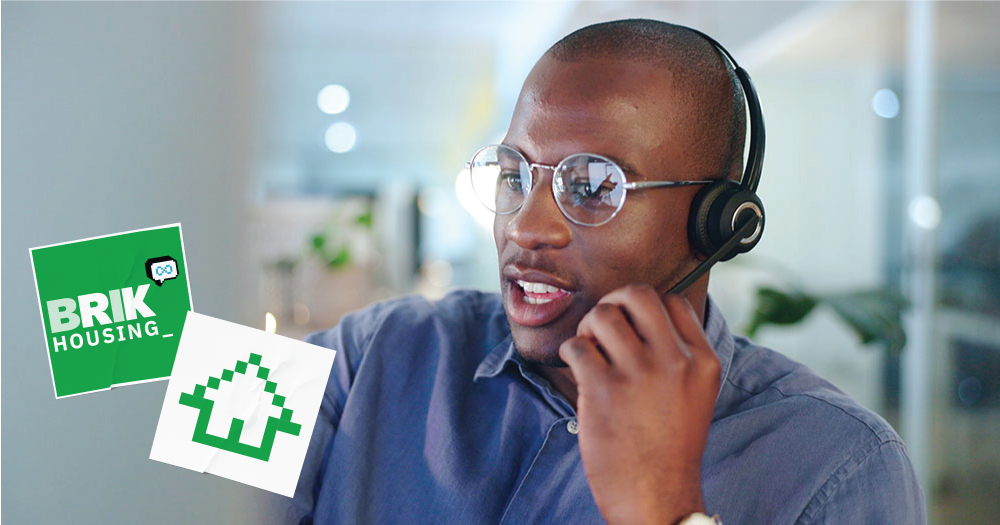For those who have managed housing associations, you likely already know how critical good communication is.
There needs to be a constant two-way dialogue between landlord and tenant. It is only with this that issues can be resolved swiftly and expectations met on both sides.
However, housing management companies often face barriers to communication that lead to inefficiencies. This might include call volume that extends beyond their capacity, lack of insight and inability to predict demand. These lead to rising service costs and reduced tenant satisfaction.
But in recent months, omnichannel communication has become a hot topic in the housing sector. It has the potential to solve many of the issues listed above, creating better processes for landlords and tenants alike.
We explore the benefits of omnichannel communication in housing management and how to make the most of it.
What is omnichannel communication?
Omnichannel communication refers to companies giving tenants and customers multiple channels to contact them on.
In today’s digital age, there are more ways for people to communicate with each other than ever before. As a result, more and more companies are leveraging non-traditional channels for customer service.
Omnichannel is often associated with multichannel communication, though it does differ slightly. Like omnichannel, multichannel offers multiple communication channels, but may have different experiences on each.
With omnichannel, the aim is to create a consistent approach, so that tenants never have to repeat themselves, even when switching between channels. If they have a conversation over the telephone, this information should be recorded and referred to if they were to contact again through email.
In Housing Associations for example, communication routes include email, live chat, telephone and WhatsApp. The trick of a good omnichannel approach is creating a uniform experience across each.
Benefits of omnichannel communication in housing_
Omnichannel communication offers significant benefits for housing management, which is why more and more companies are investing in it.
Here are the key advantages:
Increased communication_
Omnichannel gives tenants more options to get in touch with landlords. Whereas multichannel offers this same privilege, it can lead to errors, frustration and confusion if not managed correctly. However, omnichannel brings these channels together to avoid information being lost into the void.
By offering increased options, residents can come to you on their preferred channels, at a time that suits them, rather than having to wait in a telephone queue.
Better customer experience_
With more communication options, residents can quickly have their questions and concerns heard. This drives satisfaction.
Omnichannel also forces consistency, meaning that tenants do not face the frustration of having to repeatedly chase issues and encouraging a faster resolution.
Empower agents_
When agents do not have the information they need to respond to tenants, it leads to delays, inaccurate answers and poor customer experiences.
But a strong omnichannel approach ensures they have the context they need on tenants, even if conversations have happened across a variety of channels. Agents can quickly get up to speed and provide a relevant response, meeting tenant expectations.
Save money_
Omnichannel spreads the volume of resident enquiries across different communication channels. This eases the pressure on your call centre, freeing resource and reducing call costs.
Digital channels, like email and live chat, also offer increased cost-efficiency for long-term savings.
Improve productivity_
Non-telephone channels typically offer shorter handling times, which can enable agents to quickly respond and get back to working on other things.
With communication options like live chat, there is also the possibility to use AI to automate responses and further improve productivity.
Easier communications to tenants_
Alongside making it easier for residents to raise issues with you, omnichannel can also make it simpler for you to contact them.
You can send announcement and reminders on their preferred channels so there’s no risk of messages behind missed. This results in faster responses and clearer communication.
What do you need for your omnichannel set up?
While omnichannel communication offers critical benefits for the future of housing management, there are specific criteria you need to fulfil to effectively introduce it into your processes.
Here is what you need to do to embrace omnichannel:
1. Choose the channels your customers use_
First, you need to understand what channels to cover. This will require understanding of tenants preferred channels and their business case.
When selecting your channels, think about which you could reasonably service, the cost implications and the operating times (e.g. does it require an instant response? What hours will that channel need to be open for contact?).
This will help you to choose channels that make sense for both your tenants and the business.
2. A powerful back-end system_
If you are taking an omnichannel approach, you need a system that monitors contact across every channel and brings it together in one place.
Any system you choose should store information in tenant records, enabling any agent to gain the full context of past interactions and provide relevant answers.
It should also allocate queries to agents in real-time, providing fast responses for tenants and facilitating productivity.
3 . Nudge residents towards alternative channels_
One of the key benefits of omnichannel communication is that it alleviates the strain on your call centre. However, this only happens if you advertise your alternative channels to tenants.
Include your different channels on your contact information and make it clear where tenants can contact you.
You might even encourage people to contact you on these channels using the recorded welcome message on your service line.
By encouraging uptake of these other channels, you’ll gain the improved handling times and costs associated with omnichannel.
Make the move to omnichannel communication_
Given higher resident expectations and increased digital capabilities available, housing management organisations need to evolve to offer better experiences and increased efficiencies internally. Omnichannel communication provides this, making it easier to service tenants in a cost-effective manner.
However, omnichannel also requires transformation toward capable systems and innovative technologies. To effectively evolve, you need solutions customised to your needs with a comprehensive roadmap to get you there smoothly.
Get in touch to see how you can benefit from an omnichannel approach to communication.




